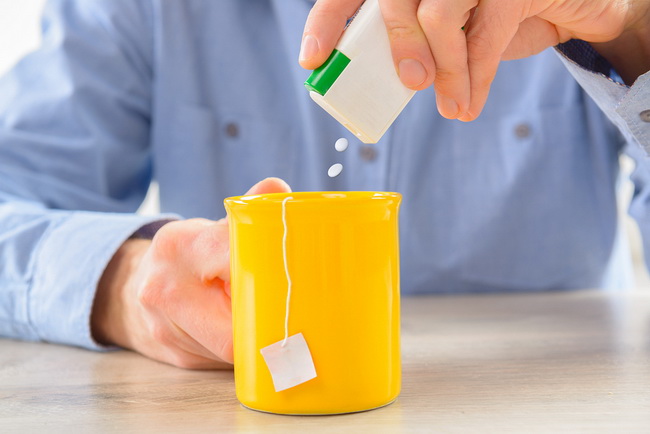- Make It Yourself Lavender Heart-Shaped Bath Bombs!
- 20 Things You Never Knew About “Down There”
- 12 Best Foods For Those Suffering From Arthritis Pain
- 12 Personal Hygiene Mistakes Almost Everyone Makes (Mom Never Told You About #4!)
- 15 Medicinal Plants And Herbs From The Cherokee People
- 12 Mind-Blowing Benefits Of Drinking Coconut Water During Pregnancy
- 12 Outstanding Winter Foods That Won’t Fatten You Up Like A Christmas Turkey
Artificial Sweeteners May Cause Diabetes

Photo credit: bigstock
There has been so much written about the dangers of artificial sweeteners and still, a large section of the population continues to believe that these products are harmless and are a safe alternative to sugar.
For those of you who reach for artificial sweeteners instead of sugar because you think it’s safer or that they are somehow ‘better’, you might find that you are simply trading the devil you know ( sugar) for the devil you don’t know ( sucralose, saccharin, or aspartame).
Perhaps the latest research study will turn the tide and convince the skeptics. Recent research, conducted at the Weizmann Institute of Science in Israel, shows that there is a link between the use of the three most common artificial sweeteners and drastic changes in the gut bacteria of humans. This can increase the risk of metabolic syndrome as well as Type 2 diabetes. The irony of this matter is that many people use artificial sweeteners in order to avoid diabetes or lessen their symptoms in the first place.
This new study, published in the journal Nature, state that artificial sweeteners are considered to be safe by many and yet, the supporting scientific data shows that consumption of these chemical formulates is the driving force behind the development of an intolerance of gluten.
The study used the top three most popular artificial sweeteners, aspartame, saccharin, and sucralose. Researchers found that when they transplanted the gut bacteria from mice that were fed artificial sweeteners to mice that had never had artificial sweeteners, led to those mice having higher blood sugar levels. Genetic testing discovered that the gut bacteria itself was changed by these artificial sweeteners and those changes could account for the rise in blood sugar levels.
SEE ALSO: Is Stevia Safe?
In fact, this study showed that all three of these chemical sweeteners were found to actually later the blood sugar levels of mice more than plain old table sugar did!
This study had several parts including:
- One study that involved 400 people showed that those who consumed these artificial sweeteners were more likely to have problems with blood sugar levels and had more trouble controlling them.
- Seven people, who in their normal diet did not consume artificial sweeteners, were followed very closely for one week as they were given controlled amounts of saccharine. Four of these seven people showed large increase in their blood sugar levels.
- Mice that were given saccharine saw large increases in blood sugar levels.
Continue to Page 2


































American Beverage Association
Dec 23, 2014 at 3:40 pm
It’s important to clarify several points of misinformation cited here. First, science has repeatedly reaffirmed that low-calorie sweeteners are safe, and can help cut calories and promote weight loss. A study published in the American Journal of Clinical Nutrition verifies this fact, as well as debunks the myth that diet beverages cause an increased preference for sweet foods and beverages: http://bit.ly/Ik4zjC. Moreover, the “research” referenced here claiming that low-calorie sweeteners change the balance of bacteria in the gut, and contribute to diabetes and weight gain are not substantiated by the body of science. Frankly, this study, which focused predominantly on rodents, is not at all a reflection of real life for humans. Bottom line: low-calorie sweeteners are a viable calorie-cutting tool and can be a part of a balanced diet and active, healthy life. – American Beverage Association